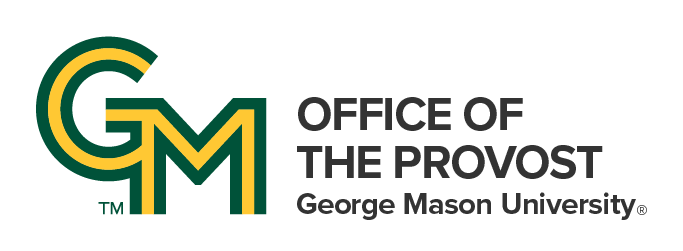In his cult-classic work Deep Simplicity, John Gribbin wrote “some systems … are very sensitive to their starting conditions, so that a tiny difference in the initial ‘push’ you give them causes a big difference in where they end up...”

Imagine having that kind of influence as an individual, so simple and yet so powerful that what you say or do could ripple across someone’s life and transform their entire being. Perhaps the surprising reality is that it’s actually not difficult to recognize the truth of this statement if you know a member of Mason’s adjunct faculty. A rich combination of industry and agency experience, as well as connections and access to outside resources, means some of the most effective instructors Mason are adjuncts.
Richard Groover, an adjunct professor in environmental science and policy and author of three books including second edition of The Environmental Almanac of Virginia, is one of those consistent and dominant forces in Mason students’ lives. Though officially retired as an associate dean from Reynolds Community College, Richard is committed to lifelong learning and sharing that knowledge with others. As a dean, he spent much of his time working on administrative issues—all the while missing the classroom experience. Knowing that his interest areas could have a life-saving impact and his influence in the classroom could change student career trajectories, Richard made every effort to teach again and since 2017, he has brought a perspective outside of book materials to enhance the learning process: the professional, real-world side of things by providing students with knowledge, experience, connections and access to resources that full-time professors can’t offer.
“I like students and I like teaching. I like imparting information—it’s rewarding. And as an adjunct, I have freedom to investigate areas that give me a broader perspective of what’s going on everywhere,” he said.
But it’s what he finds the time to investigate that makes Richard unique: it’s not just climate change but rather the systems within the environment that shift with the slightest push. Insects and algae grew into a deep understanding of dragonflies, which he learned have inherent value because as predators, dragonflies help diminish diseases spread by mosquitoes, horseflies and deer flies. He is also one of the Commonwealth’s coyote experts and is actively sought out to educate the public, mitigate a pack’s presence, and teach what strategies people must take to live co-exist with the animals.
“Dragonflies and coyotes survive because they’re very good at living in whatever space they select. Both have a tremendous impact (positive and negative) on Virginia and through my research I’m able to share strategies and information, as well help deal with conflict, when it comes to animals, man and the environment,” he said. “My research [allows me to] try to communicate how we must learn to live with them.”
While he finds his work with dragonflies and coyotes to be personally gratifying, Richard is constantly surprised how much he learns from his students. Unlike insects and animals, humans aren’t necessarily good stewards of the earth but Mason students, he says, are different as their ability to grasp the severity the human experience can have on nature and create tools for renewal gives him hope for the future.
“Every year my students become more aware and knowledgeable of climate change. In fact, this generation has a different attitude about climate change—they clearly understand the consequences,” he said. “Being able to bring my first-hand experiences into the classroom and to think outside of traditional thought while connecting students with ways they can impact the world fills me with optimism.”
And with that ever so slight push Richard—and other adjuncts like him—provides his students, he knows the world is in good hands.
